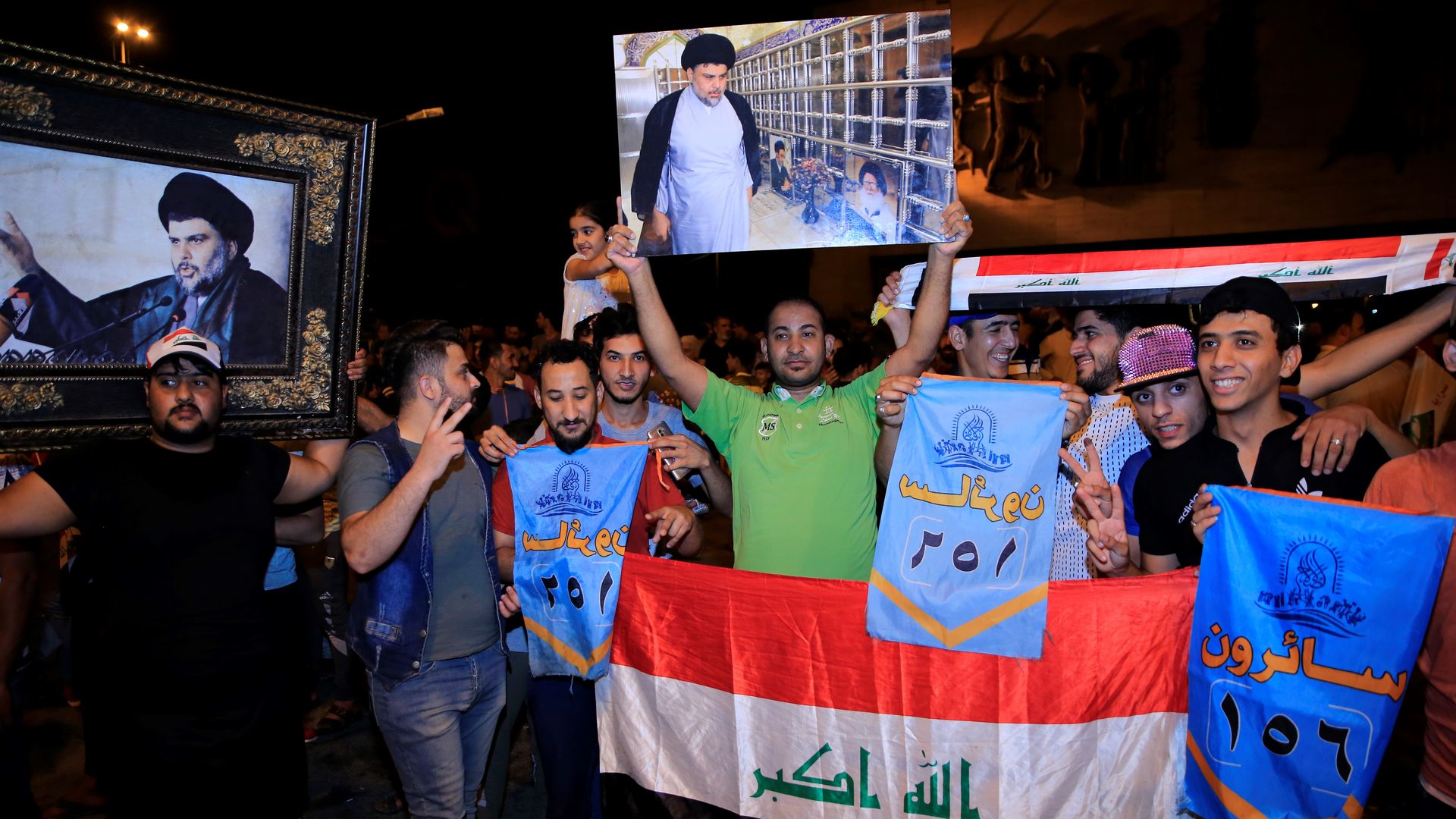Updated May 14, 2018
Expert VoicesIraqi elections deepen political fault lines amid U.S.–Iran tensions
Add Axios as your preferred source to
see more of our stories on Google.

Supporters of Iraqi Shiite cleric Muqtada al-Sadr celebrate the results of the parliamentary election in Baghdad on May 13, 2018. Photo by Murtadha Sudani/Anadolu Agency via Getty Images
